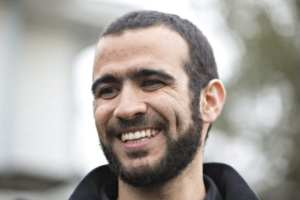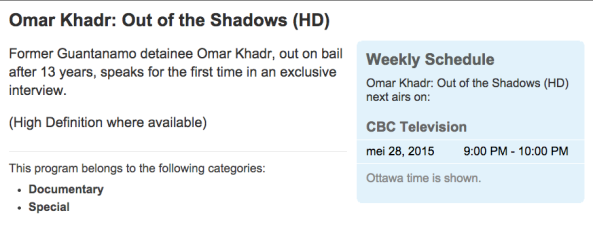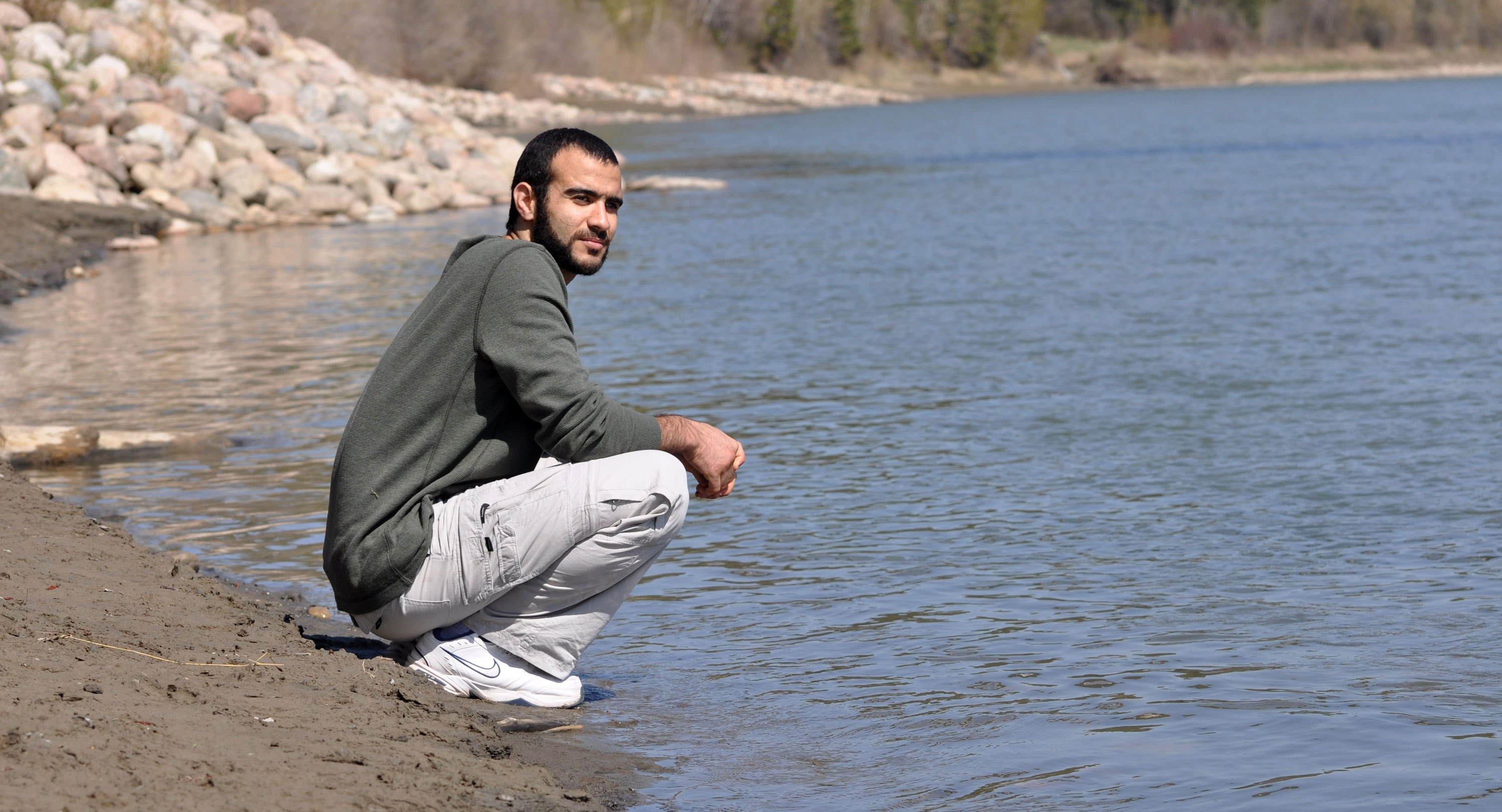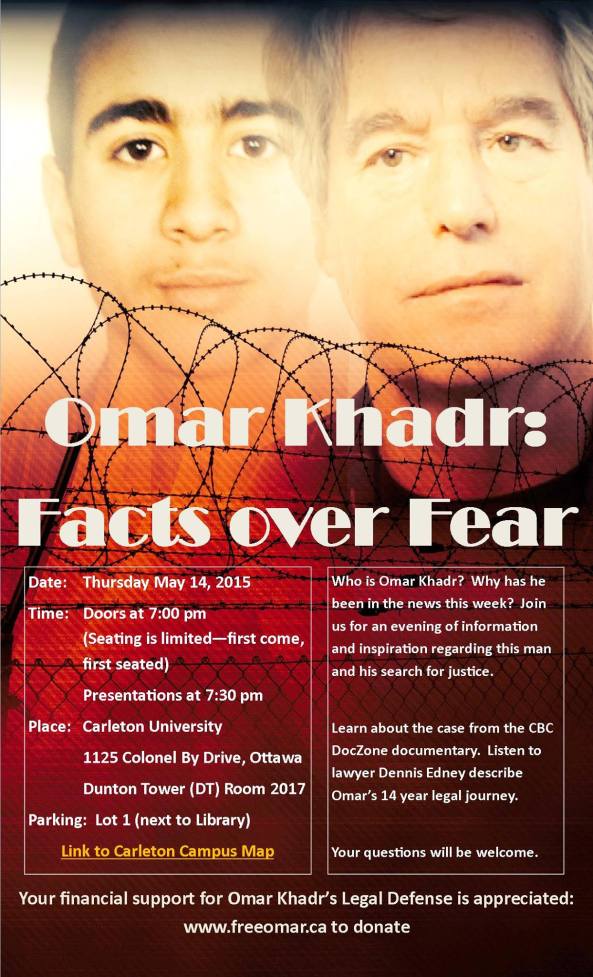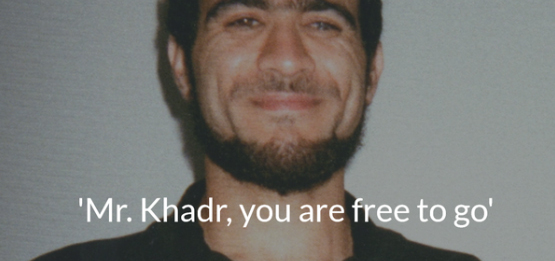Today the Supreme Court of Canada sided once again with Omar Khadr, in a unamimous ruling.
.
By Hazel Gabe, Free Omar Khadr Now member, on location.
.
In a rare quick decision from the bench, the supreme court confirmed the earlier order of the Alberta Court of Appeal that Omar should have been classified as a juvenile thereby serving his sentence in a provincial facility. The court went on to say that Omar should never have been treated as an adult or placed in a federal penitentiary. According to the ruling, Ottawa has made a grave mistake in its interpretation of the International Transfer of Offenders Act and should never have treated Omar thus.
.
Omar’s ‘sentence’ in 2010, by an extrajudicial U.S. military commission at Guantanamo Bay, was widely denounced by legal experts and human rights organizations worldwide. However the sentence itself it was not under question today. The topic before the Supreme Court was how Omar should have been classified upon his return to Canada in 2012.
.
The practical application of the ruling has to do with whether Omar’s sentence should have been served out in a federal prison, as the crown maintained, or in a provincial facility. An adult sentence would have meant that, if Omar were to return to prison, it would be to a federal penitentiary. Prior to being released on Bail, Omar was being held in a provincial facility outside Edmonton. But, initially Ottawa had placed him in a federal penitentiary-for several months in solitary confinement. It took a legal challenge of his adult classification status to seek transfer to a provincial facility, where he was able to access educational programs and opportunities.
.
The International Transfer of Offenders Act and other treaties govern the transfer of prisoners between countries like the United States and Canada, so that sentences can be served out in a prisoner’s home country even if a sentence was administered abroad. This is the basis under which Canada continues to enforce the sentence imposed by the United States. Omar is currently challenging the charges against him in US courts. Other ex-Guantanamo prisoners have successfully challenged their charges in US civilian courts.
.
Lawyers for the crown argued that Omar’s sentence should be considered adult, despite the fact that Omar was 15 at the time of the offences. But the court agreed with defense lawyers who stated that as Omar’s eight-year sentence falls under the maximum of life imprisonment for adults in Canada, it must be considered a juvenile sentence in this country.
.
The ruling has no immediate effect on Omar as he is currently free on bail. However, it would be an important consideration if he were to return to prison. With this ruling he would be returned to a provincial prison as before, with access to rehabilitative programs. A lawyer for Amnesty International, who spoke at today’s hearing, pointed out that the more lenient route is congruent with international law, which makes special provision for children and children involved in armed conflict and stresses rehabilitation.
.
Omar received his Guantanamo Bay sentence as part of a plea deal that would allow him to return to Canada. After 11 years in US custody, subjected to ongoing human rights abuses including torture, he was offered the deal as the only escape from indefinite imprisonment. The United States maintains the right to keep prisoners at Guantanamo Bay irrespective of rulings of innocence or guilt. Although the Military Commissions process does not follow basic legal principles, allows evidence obtained under torture and is not legally comptenent to determine innocence or guilt, Omar has been forced to wrangle his way through Canadian courts for justice.
.
This is Omar’s third victory in the Supreme Court, which has consistently ruled in his favour.
.
Like this:
Like Loading...


